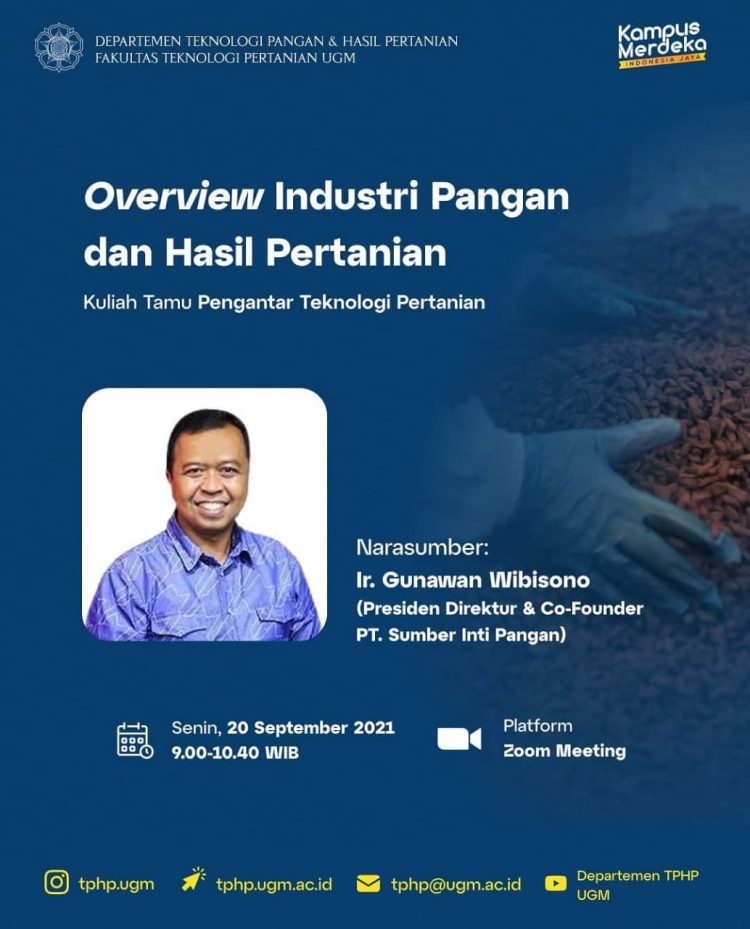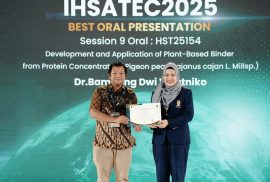
The Introduction to Agricultural Technology course at TPHP UGM held a guest lecture with the theme “Food and Agricultural Products Industry”. This guest lecture invited a speaker, Ir. Gunawan Wibisono, who is the President Director and Co-Founder of PT Sumber Inti Pangan. The guest lecture which took place on Monday, September 20, 2021, at 09.20-11.05 WIB was hosted by Dr. Dwi Larasatie Nur Fibri, S.T.P., M.Sc. This guest lecture was held through the Webex platform and attended by 115 participants.
The agricultural sector is one of the industrial sectors that is the livelihood of 60% of Indonesia’s population. This sector triggers opportunities for the formation of various food industries because it has a fairly strong resilience position, as evidenced when the Covid-19 pandemic and the 1998 monetary crisis occurred, the turmoil that occurred in the food industry was minimal. In addition, the food industry also has various benefits, such as increasing the exchange rate of agricultural products, increasing the number of workers, increasing farmers’ income, increasing the volume of exports and foreign exchange earned, increasing market share both domestically and internationally, increasing the supply of industrial raw materials, and contributing to education.
In the face of an increasingly competitive food industry competition, a new development strategy is needed along with process technology innovation (simple, medium, high) in producing products with higher economic value. In addition, the food industry can enter the global market by implementing food standards and quality of food products by the requirements of Food Safety System Certification 22000 (FSSC 22000).

In the food industry, the role of food technology graduates can be seen in the Research and Development (R&D), Quality Control (QC), and manufacturing departments. Research and Development is tasked with developing products by taking into account the nature of raw materials, processes that can be carried out, and the resulting product output. Quality Control is responsible for ensuring that products are produced by the required safety standards. Manufacturing is in charge of evaluating procedures and processes and understanding the series of processes that are carried out to achieve the maximum level of efficiency.




